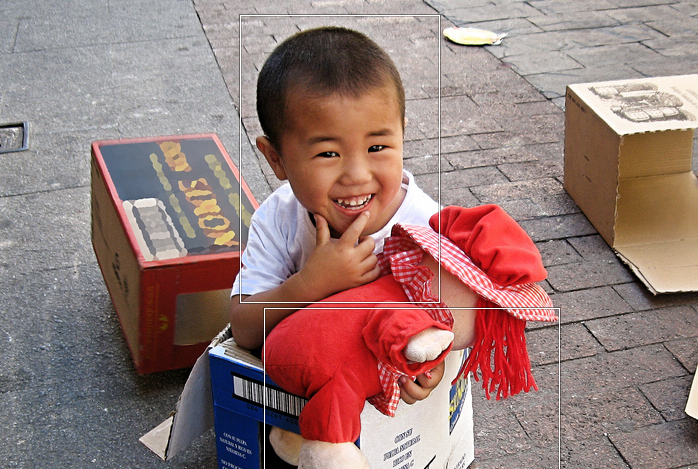Helping shy children
Is Your Child Struggling to Form Connections? Here Are Some Tips to Help Them
Written by Lilianna Hogan
It's completely natural for a child to feel shy. It's not uncommon for children to feel as though they are on display, to shy away from meeting new people, or to feel more comfortable watching from the sidelines rather than be in the middle of the action. However, there are ways you can support your child and help with their anxiety.
What Does Shyness Look Like in Children?
It's common for children to feel nervous in new situations or around new people. Unfortunately, our society often praises more outgoing personalities over introverted ones, and this can put pressure on children as they go through natural stages of development. In more naturally introverted children, this can cause feelings of self-consciousness.
Despite all this, shyness can be associated with the following benefits for children:
- Achieving academic excellence
- Listening and better following rules
- Being a great listener
Some signs that your child’s shyness might be severely impacting them and that they may need help coping with it include:
- Decreased social skills or involvement in socialization
- Fewer friends
- Less participation in enriching activities such as sports, dance, drama, or music
- Feelings of isolation, loneliness, unimportance, and self-consciousness
- Unnecessary stress over the opinions of others leading to a lessened ability for your child to reach their full potential
- Extreme anxiety
- Physical affectations like blushing, stammering, and trembling
Causes of Shyness
While each case is unique, some possible causes of your child’s shyness could be:
- Genetics.
Certain genes can affect a child's disposition and personality.
- Personality. Some people are naturally more sensitive and prone to intimidation from external circumstances than others. This could be true of your child.
- Learned behavior. Children often learn how to behave by watching their parents. If you are shy, you might be teaching your child to be shy.
- Family relationships. Sometimes, children who do not feel secure in their family or with the adults in their life become shy. Parents who are overbearing or overprotective can also instill shyness or fear in their children.
- Lack of social interaction. Children who are deprived of human interaction in the crucial first few years of their development may be shy.
- Intense criticism. Children who are teased, bullied, or otherwise criticized by important figures like parents, teachers, or friends tend to be shy.
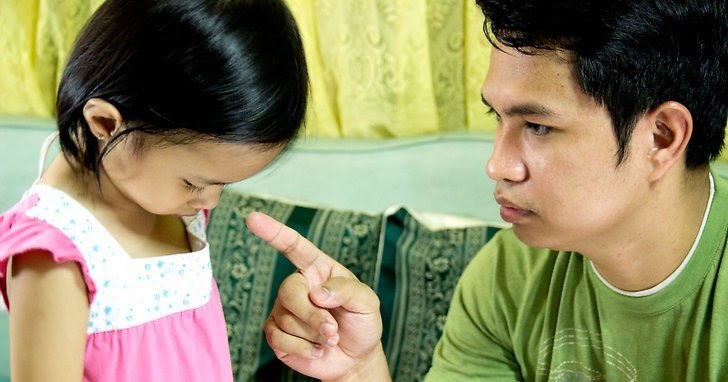
- Fear of failure. Children who feel like they've failed or who have been continuously pushed beyond their limits can present as shy.
How to Help Your Child with Their Shyness
While shyness is a natural stage in development that your child will most likely grow out of, there are ways you can support them. Some things you can do to help them include:
- Never label your child as shy. If your child knows they're shy, they may start to criticize themselves when they exhibit shy behavior. The idea that shyness is bad or that it means there's something wrong with your child will only make them feel shyer.
- Accept your child. Never make fun of your child for being shy. Instead, make an effort to let them know you accept and love them as they are.
- Try to understand. Ask your child about their shyness. Try to understand their fears or hesitations about showing the world who they are.

- Let your child know you relate to them. Tell your child about times that you felt shy. Talk to them about how you felt better. Children look up to their parents, and knowing that you overcame your anxiety will give them an immense sense of strength and empowerment.
- Model confident behavior. There is no better way for your child to learn how to act than by watching you model it.
- Talk about the benefits of being outgoing. Share stories of how being outgoing has helped you in your life. Talk about behaviors you would like your child to adopt. Praise your child when they model these behaviors.
- Goal set. Set benchmarks for your child to hit to make them more comfortable socializing. Be sure to make the goals small and achievable. They could be as small as saying hello to one person each day.
- Expose your child to new things. Try to show your child new things and expose them to new experiences.
 Be supportive if they exhibit more extroverted characteristics over time.
Be supportive if they exhibit more extroverted characteristics over time. - Make sure your child can do things they're good at. If your child can engage with activities they love and are good at, they can derive a great sense of purpose and confidence. Praise them when they are good at something and provide them with opportunities to do those things. By participating in activities they enjoy, they might even have an easier time connecting with children with similar interests.
13 Tips to Help Children Manage Social Anxiety
Parents often ask me how to help children who are "shy." But what does "shy" even mean?
Some children who are considered "shy" are highly sensitive, meaning very aware of and strongly affected by their environment. Others are introverted, meaning that they need time away from other people to renew their energy. Some children are so absorbed in their own projects and ideas that they're simply less interested in social interaction.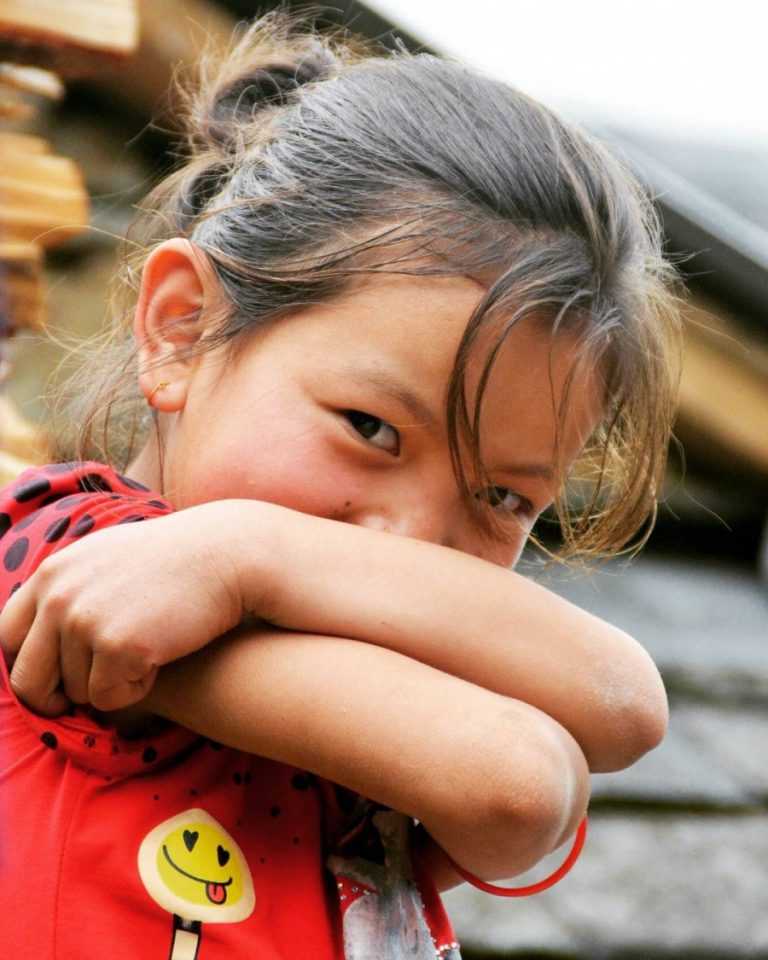 Some feel more anxious when their "attachment people" aren't there as backup.
Some feel more anxious when their "attachment people" aren't there as backup.
And the rest of us who think we're "shy" usually mean that we feel awkward or anxious in social situations. A large NIMH study in 2011 found that half of all teenagers in the United States think of themselves as "shy." In fact, half of all adults think of themselves as "shy," and many more say that they were "shy" as children. That's a lot of us. And yet most of those adults feel able to successfully handle most social situations they encounter, at least most of the time. They've gained confidence through their experience that even if they're sometimes a bit apprehensive, they'll be able to manage.
So let's say, for the purposes of this article, that you're reading this because you want to support your child to become more comfortable in social situations. Hopefully, you appreciate your unique child, who probably notices social nuances that other children miss. But it's natural to worry if your child seems to feel anxious with other people. We all want our children to make friends easily, to feel comfortable asking questions at school, to speak up for themselves.
But it's natural to worry if your child seems to feel anxious with other people. We all want our children to make friends easily, to feel comfortable asking questions at school, to speak up for themselves.
The good news is that most kids can learn to manage social anxiety so they can connect happily with others, enter new groups, and speak up for themselves. Some just need a little extra support.
1. Nurture your child by noticing her needs and responding to them.
Highly sensitive baby chimps given to extremely nurturing mothers became leaders in their group, while their equally sensitive siblings raised by less responsive chimp mothers seemed anxious and fearful throughout life. Responsive mothering helps sensitive little ones learn to calm themselves and manage their reactions. That allows their heightened sensitivity to become an asset, because it makes them more aware of the needs of their peers and better at negotiating group situations.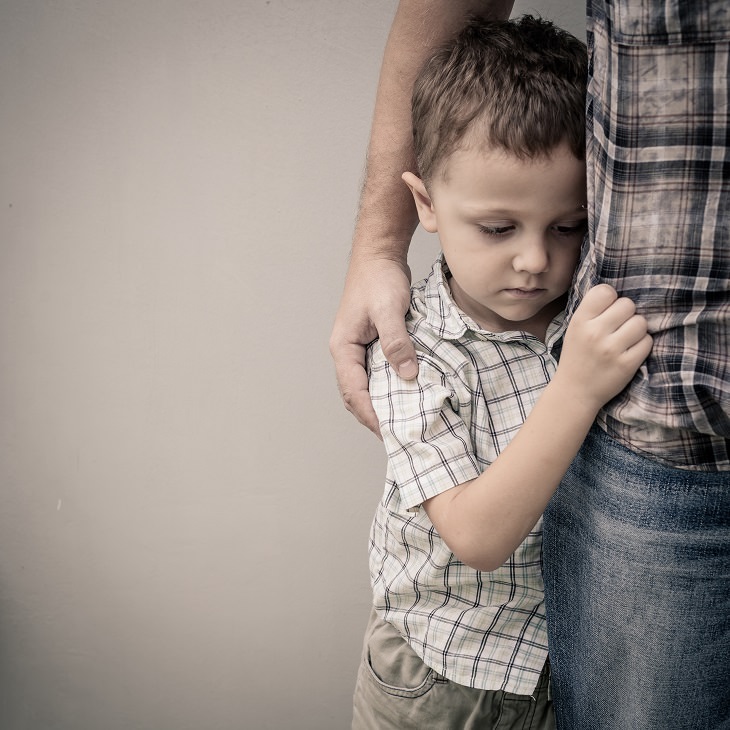
2. Empathize with your child’s worries and avoid shaming him.
Acknowledging what your child feels, without negative judgment, helps him to feel good about himself. Giving him the impression that there is something wrong with him will just make him feel worse about himself, and therefore more insecure. Empathizing with your child will also help him develop empathy, which will enhance his social skills and help him connect with others.
3. Teach your child to trust their inner compass -- and that discomfort is okay.
Most of us think that when we're uncomfortable, we should run in the other direction. But discomfort is part of most new situations, and that means it is part of how we grow. Teach your child that it is okay to feel uncomfortable. When she feels uncomfortable, her job is to notice that, and soothe herself so that she can think clearly.
Then, evaluate the situation. Is there actual danger? In that case, seek trustworthy help.
But danger is rare. Most of the time, discomfort signals a new situation. In that case, maybe there is something new to learn, or someone she will enjoy meeting. Then, her job is to reassure herself, keep paying attention to the situation, and support herself to take small steps toward engaging with the newness. Over time, positive experiences will build trust, and she may come to enjoy and value that process of discovery.
4. Model confident behavior with other people. Kids learn from watching us.
That means being friendly to strangers, offering help to others, and modeling a relaxed attitude about social interactions of all kinds.
5. Teach your child basic social skills to respond to both adults and children.
Kids often need to be taught to make eye contact, shake hands, smile, and respond to polite chit-chat appropriately. Make games out of social skills and practice at home. Just grab two teddy bears and have them act out scenarios in a funny way to get your child laughing, which defuses the child's anxiety. During your show, ask your child frequently "What should he say? What should she do?"
During your show, ask your child frequently "What should he say? What should she do?"
6. Help your child learn how to make friends.
Role play with your child how to notice and respond when another child initiates, how to join a game at the playground, how to introduce themselves to another child at a party, and how to initiate a playdate. For instance, kids who are successful in joining groups of kids usually observe first, and find a way to fit into the group, rather than just barging in. It can really help to read books about social skills with your child and then role play. Several good books are listed at the end of this article, for children of different ages.
7. Coach your child to express her needs and stand up for herself in social situations.
All children need the confidence that they can handle what comes up when parents aren't around. For instance, every child needs to know how to respond to affronts with phrases like "It's my turn now.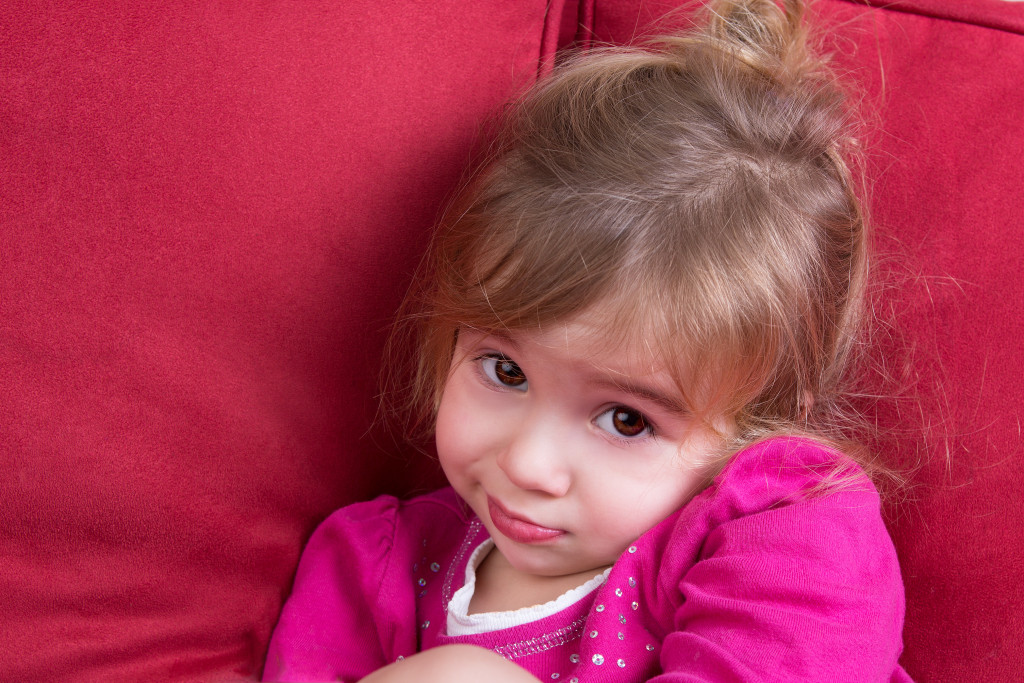 ... I was still using that..... I don't like it when you say that.... I am not going to play with you if you say hurtful things to me." This is especially important when peers tease or bully. Roleplaying is essential in learning skills, play is very helpful in managing anxiety, and reading books helps teach kids that they aren't alone or powerless. Asking "What would you do?" is invaluable in helping kids think through possible responses and outcomes.
... I was still using that..... I don't like it when you say that.... I am not going to play with you if you say hurtful things to me." This is especially important when peers tease or bully. Roleplaying is essential in learning skills, play is very helpful in managing anxiety, and reading books helps teach kids that they aren't alone or powerless. Asking "What would you do?" is invaluable in helping kids think through possible responses and outcomes.
If you're concerned about your child's ability to stand up for himself, one good book to help you coach your child, offering scripts and strategies, is Scott Cooper's Sticks and Stones: 7 Ways Your Child Can Deal with Teasing, Conflict, and Other Hard Times. Several books for kids on how to handle bullying are listed at the end of this article. You may also want to read the article 11 Ways to Empower Your Child Against Bullying on this website, which has more specific suggestions and book recommendations.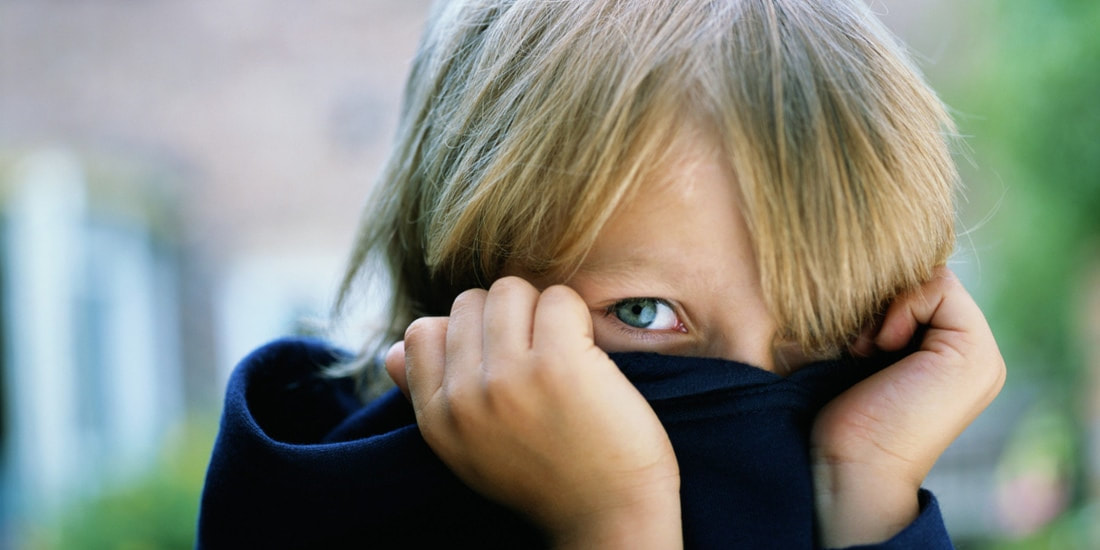
8. Don’t label your child as shy.
Instead, acknowledge his worries and point out that he can overcome his fears. For instance,
“Sometimes it takes you awhile to warm up in a new situation. Remember Lorenzo’s birthday party, how you held my hand all through the games? But by the end, you were having lots of fun with the other kids.”
9. Teach your child effective strategies for dealing with feelings of social awkwardness.
One very helpful approach to social anxiety is to accept it as a part of normal life that affects most people. Then, reassure yourself that you’re okay, and focus on others rather than yourself. For instance, reassure your child that most people feel socially awkward at least sometimes. Then remind your child that she doesn’t have to be interesting, just interested, and teach her to ask other kids questions and listen to their answers.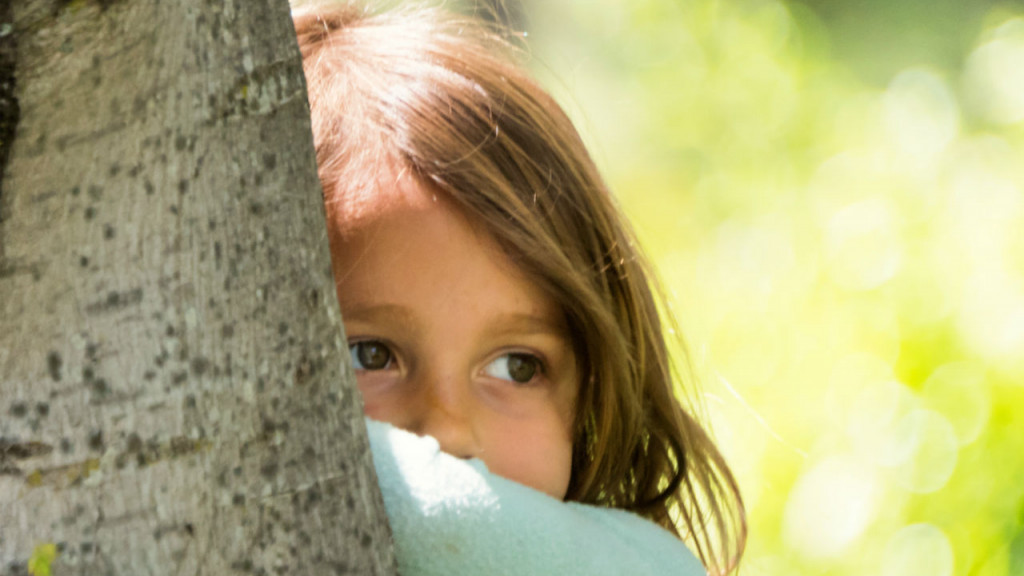 Brainstorm with her how she might handle a situation that makes her nervous:
Brainstorm with her how she might handle a situation that makes her nervous:
“If you feel nervous at the party today, what could you do to make yourself more comfortable? Could you hang out with one of the kids you know from school? Could you offer to help serve the refreshments? What could you say to reassure yourself? What do you think you might talk with the other kids about?”
Once she knows she can handle whatever comes up, she'll feel more ready to tackle a new experience.
10. Help your child develop social confidence by providing small daily opportunities to interact with others.
Socially anxious children need downtime, of course, especially if they're introverts. But they also need plenty of opportunities to practice their social skills. Remember that empathizing doesn’t mean being over-protective. If your child is worried, remind him that he can do hard things.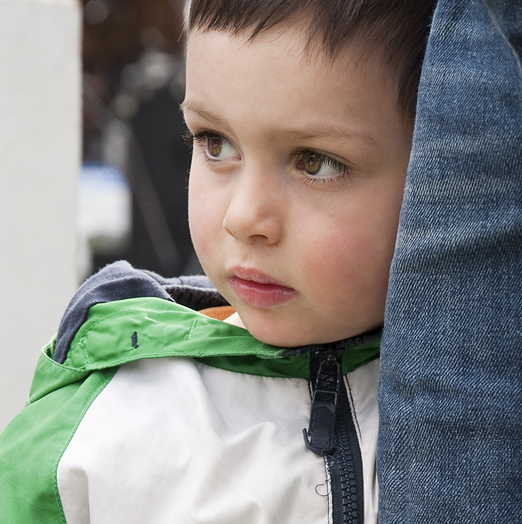 Talk every night at dinner about one hard thing each person in the family did that day. Applaud every little step your child takes on his own.
Talk every night at dinner about one hard thing each person in the family did that day. Applaud every little step your child takes on his own.
11. Don't push your child to perform.
Some children like telling jokes or showing off their new abilities for Grandma, but many kids hate it. Enjoy your unique child without making him feel like he's only valued if he performs. If you have the video rolling on your phone and your child asks you to stop, stop. She's allowed to enjoy life without feeling the pressure to perform.
12. Remember that one good friend is worth many acquaintances.
Some parents worry if their child isn't the life of the party. But what's important is that your child feel connected, like she has someone she can talk to, or someone he wants to play with at recess. It's not necessary to have a lot of friends, just a few good ones.
13. Don’t create social anxiety by teaching young children to be afraid of strangers.
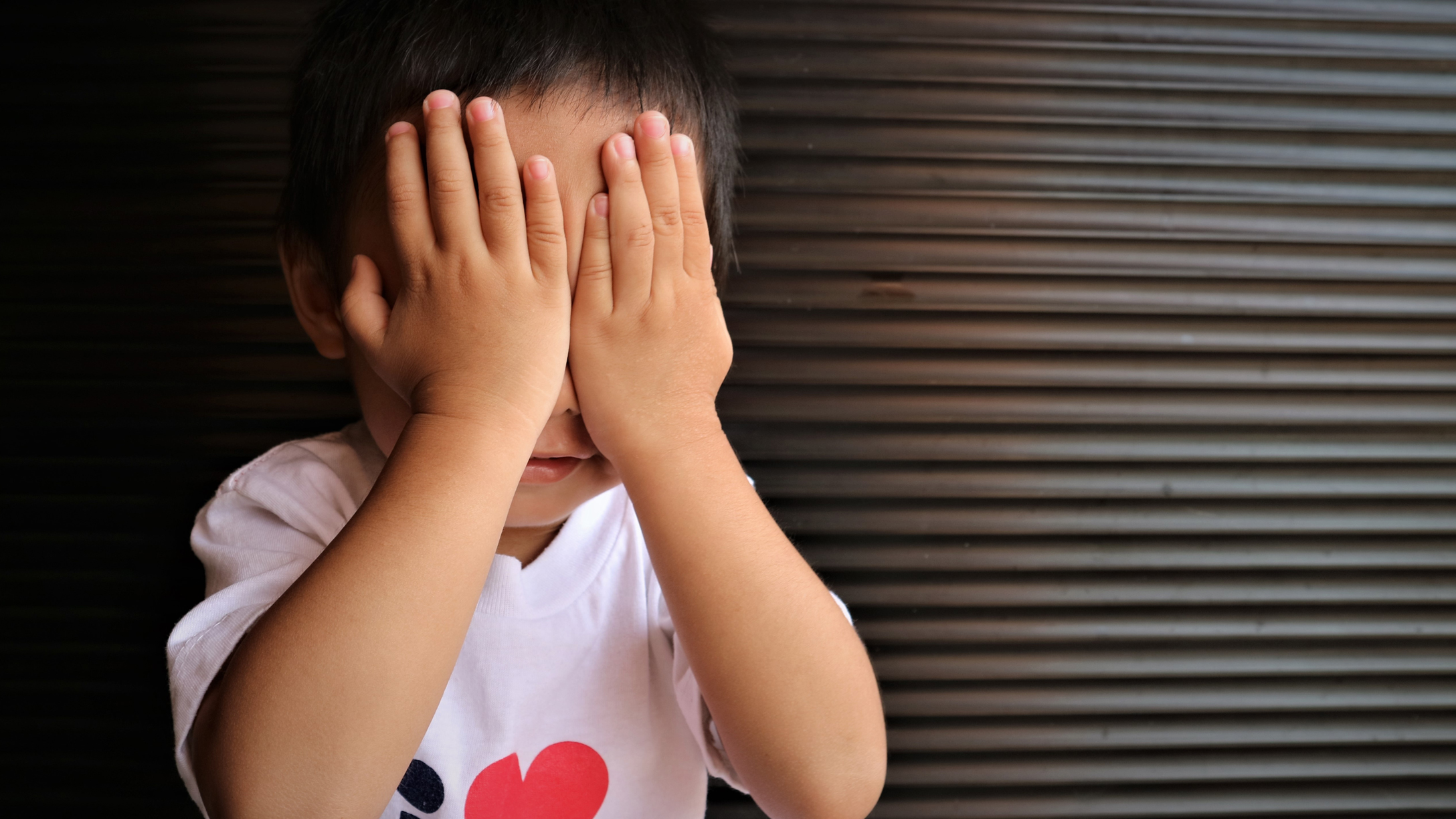
Instead, teach your child that he or she should always be with you, or with a teacher or trusted babysitter. If her special adult is with her, your child doesn’t need to be afraid of strangers. Once she’s old enough to begin walking home from school by herself, you can begin discussing how to keep herself safe.
14. If your child seems generally fearful, consider that she's got some tears and fears inside that need to be expressed.
When kids experience something scary and don't feel safe at that moment, the fears get repressed. You can think of this as stuffing them in an emotional backpack, to be processed later. The problem is that humans don't willingly subject themselves to scary feelings. So often those tears and fears stay locked up inside. But since the body knows those emotions need to be felt to go away, the feelings are always trying to bubble up to get healed. Children who are trying to keep fear at bay often become generally fearful and even rigid.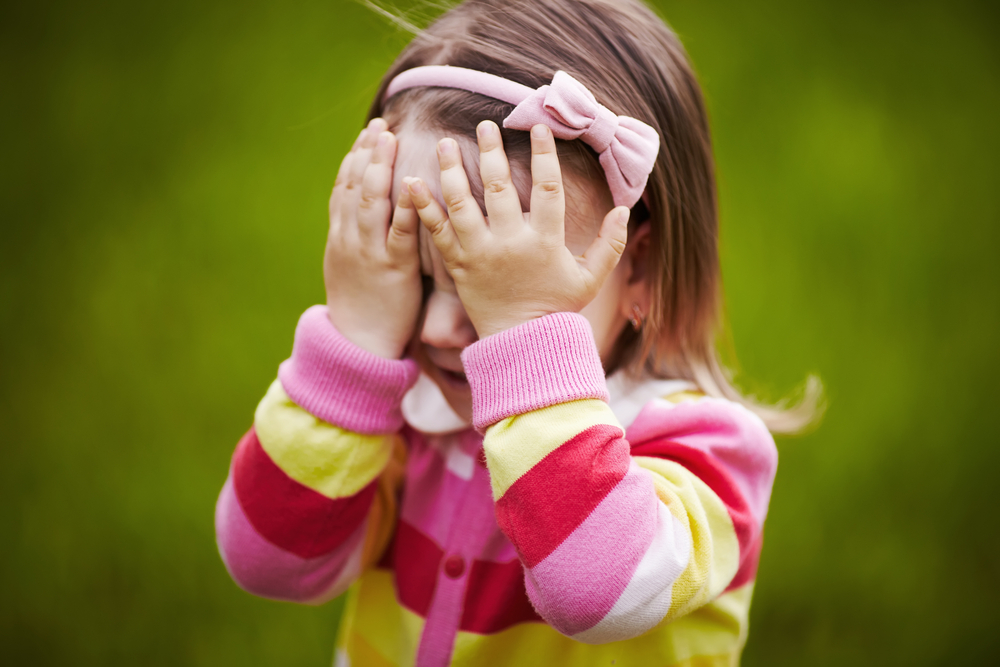 If this describes your child, give her daily opportunities to giggle by playing games that dance just on the edge of fear -- bucking bronco rides, for instance. That takes the edge off anxiety. And when she feels safe enough to let those fears surface in tears, welcome her meltdown. On the other side of it, you'll have a less fearful, more flexible child.
If this describes your child, give her daily opportunities to giggle by playing games that dance just on the edge of fear -- bucking bronco rides, for instance. That takes the edge off anxiety. And when she feels safe enough to let those fears surface in tears, welcome her meltdown. On the other side of it, you'll have a less fearful, more flexible child.
If your child is shy
Why are some children sociable, courageous, while others are shy, timid, indecisive? If you are a parent of an anxious and shy child and are wondering this, then this article is for you.
First of all, parents should keep in mind that nature has created each person unique, and each child from birth has its own advantages and disadvantages, which mutually compensate for each other. There are no completely positive, ideal children, and there are no only shortcomings.
In addition, the same quality in some situations can be considered as a virtue, and in other situations as a disadvantage.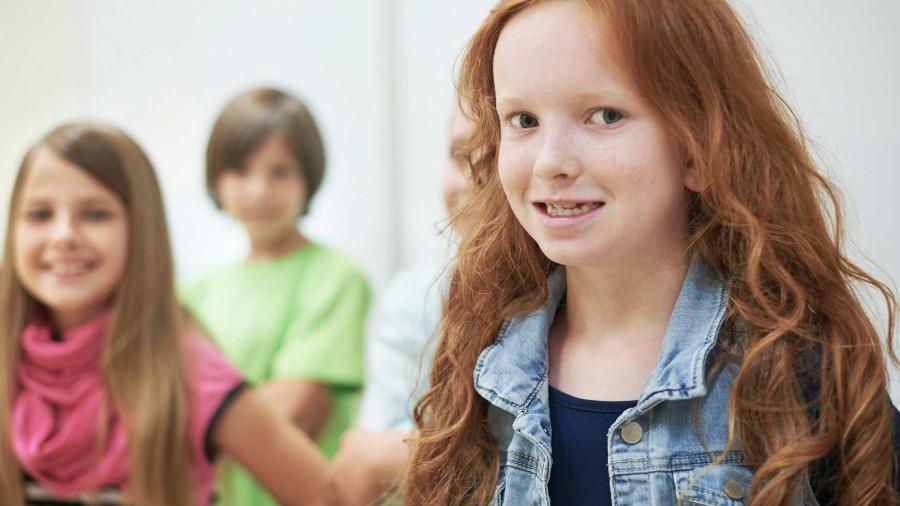 For example, the same shyness in certain situations can be regarded as modesty and politeness.
For example, the same shyness in certain situations can be regarded as modesty and politeness.
In addition, shy children have a lot of advantages: great creative potential, observation, diligence, increased sense of responsibility. Parents should help them discover their talents. And there is no need to envy the parents of tomboys, they have their own, no less serious problems with children.
Shyness, anxiety, shyness, indecision - all these personality traits are determined by one common property of temperament - restraint and in most cases are associated with low self-esteem.
Restrained children show their temperament from the first day after birth, reacting to everything new with caution and indecision. Such children tend to retreat or get annoyed when they meet with unfamiliar phenomena, be afraid of strangers, seek refuge with their mother. According to studies, about 20% of healthy babies are easily aroused by unfamiliar surroundings and then have a hard time calming down. Most of them later become timid, cautious children.
Most of them later become timid, cautious children.
The formation of increased anxiety and shyness, in addition to the nature of a given temperament, can also be influenced by the following factors:
- early and therefore painful separation from the mother, which is the cause of the child's excessive sensitivity and dependence on the emotional state of the people around him, which, in turn, forms his shyness and insecurity;
- excessive adherence to principles and strictness of parents, dependence of manifestations of attention and love on how the expectations of the father and mother are justified;
- excessive demands and expectations in relation to the child, which is often the cause of his problems in later adult life.
It is very important for parents to properly educate a shy child so as not to aggravate his shyness, but rather smooth it out. Whether your baby grows up unsociable and nervous or calm and observant largely depends on you.
Work to improve self-esteem is one of the most important components of corrective work with anxious and insecure children.
Adhere to the following rules when raising your child:
1. Do not compare the child with other children and do not focus on failures. On the contrary, try to notice all his slightest achievements and praise him for his successes. Your main task is to believe in the child so strongly and convincingly that the child believes you and is "infected" with your faith. Then he will become a self-confident person. After all, it is known: to achieve something in life, you can only believe in yourself.
2. Don't rush your child, give him time to get used to the new . A shy, timid child needs some time to get to know each other, take a closer look, understand the laws that apply in a new situation, be it a company of peers, a new teacher, a new apartment. Only by making sure that nothing threatens him there, he can calm down.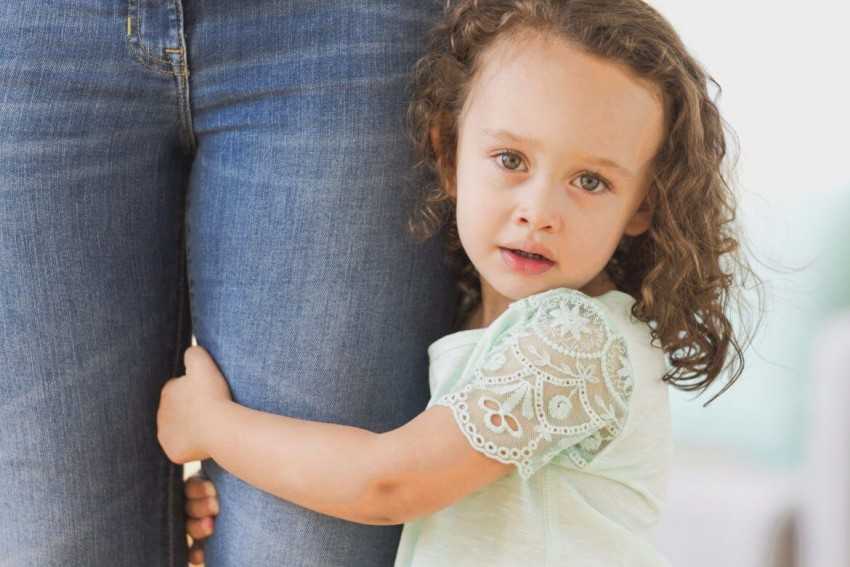 If you ask him a question, then give the time necessary to prepare an answer; try not to repeat the question twice or even thrice. Otherwise, the child will not respond soon, since he will perceive each repetition as a new stimulus.
If you ask him a question, then give the time necessary to prepare an answer; try not to repeat the question twice or even thrice. Otherwise, the child will not respond soon, since he will perceive each repetition as a new stimulus.
3. Don't force your child to "be brave". Your exhortations and notations will not bring results. The baby's anxiety is irrational in nature, because the child himself, up to seven years old, lives in a world of feelings and images, and not common sense. Saying "there's nothing wrong here" is meaningless. You need to make your child feel safe. And what drives fear away better than mother's caress, mother's closeness?
4. Do not shout at children or in the presence of children!
5. If an adult addresses an anxious child, he should establish eye contact: this instills confidence in the child's soul.
6. Increased exactingness of parents is dangerous.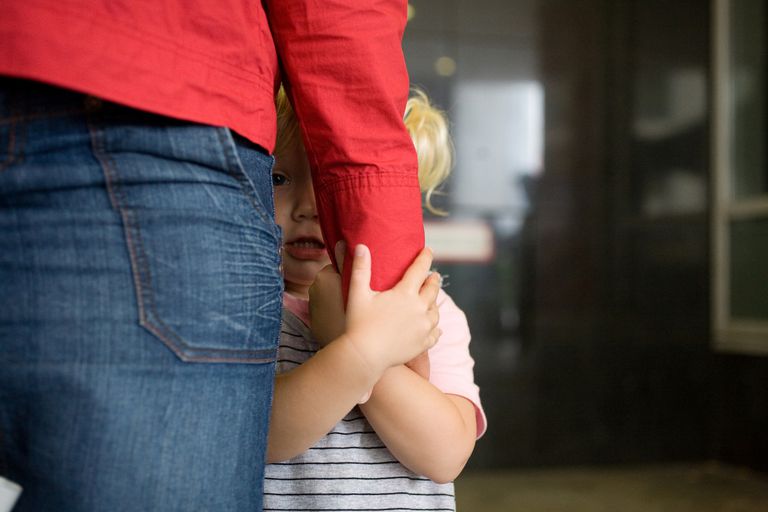 Excessive exactingness and strictness towards children with a refined mental organization leads to the exact opposite effect. The child must feel that he is accepted and appreciated, regardless of his behavior, success.
Excessive exactingness and strictness towards children with a refined mental organization leads to the exact opposite effect. The child must feel that he is accepted and appreciated, regardless of his behavior, success.
7. Try to create situations for the child where he could show his talents, dignity, in order to gain self-confidence and earn the respect of his peers. For example, you can arrange holidays for children at home and invite your kid's classmates to them, or arrange trips to nature together with the child's friends, go hiking. Here, in a comfortable environment, when mom and dad are nearby, a shy child will feel more confident and this will give him the opportunity to change the opinion of his friends about him.
8. Anxious children are extremely sensitive to the fruits of their own activities. At the same time, it is very difficult for them to evaluate the results of their work themselves, they cannot decide for themselves whether they have done something right or wrong, but they are waiting for this assessment from an adult. Negative assessments of significant adults have a strong traumatic effect on the vulnerable psyche of such children.
Negative assessments of significant adults have a strong traumatic effect on the vulnerable psyche of such children.
It must be said about the primary role of the teacher for the first grader, since it is he who turns out to be the most significant and at the same time the most traumatic figure for the child, since it is from the teacher that the negative assessment comes. Therefore, if necessary, parents can be advised to go to the school and talk to the teacher. As you know, the improvement of the position of the child in the primary grade can be achieved by a simple change in the teacher's attitude towards him.
9. There is no need to be afraid that by shielding the child from negative experience and creating comfortable conditions for him to develop, you will raise a "hothouse" person who is completely unadapted to the harsh reality . Of course, increased overprotection will only hurt. There is no need to "submit your hands" at every step, you need to create conditions for the development of independence and self-confidence.
It is important for parents to give the child a certain freedom, the opportunity to make decisions and solve problems on their own. But it is equally important not to leave him alone with difficulties for which he is not yet ready.
Shyness
Parents often have an ambivalent attitude to children's shyness. On the one hand, this trait in a child is touching. In addition, you can be sure that a shy child will not suddenly throw out some thing. Therefore, there is no need to blush for him. And yet, often, parents lament: what will it be like for such a shy person in adulthood. How to treat this trait and how to help a shy son or daughter?
All shy people are alike (including children). They experience the same feelings in communicating with other people: stiffness, awkwardness, fear of starting or maintaining a conversation. These feelings are especially intensified if they find themselves in an unexpected situation of communication, in an unfamiliar society or in a large company.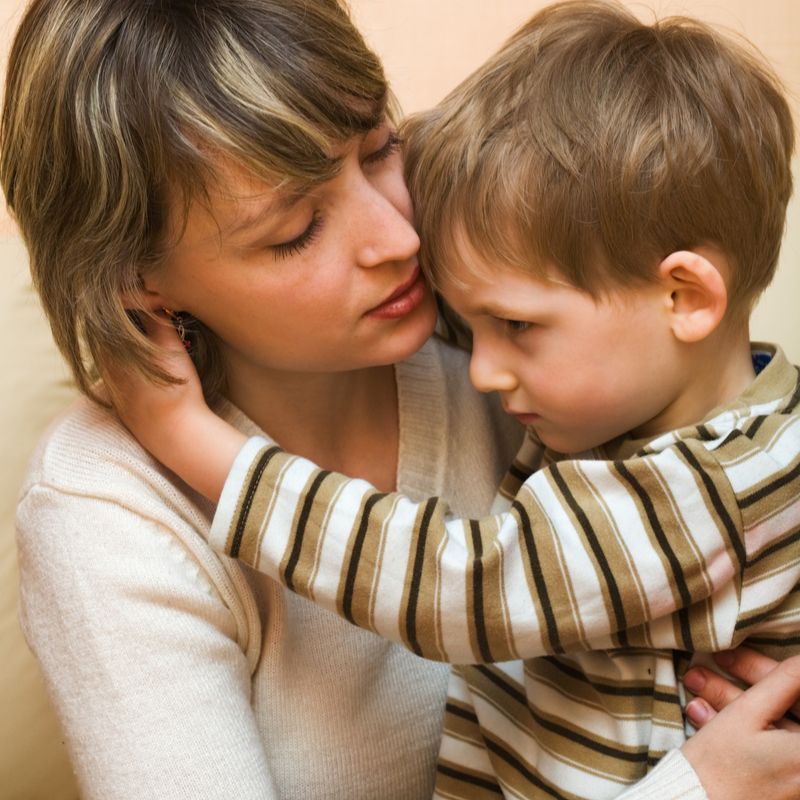
A shy person is convinced that all the attention of others is directed only to him. And that this attention is necessarily negative. That others critically evaluate his appearance and behavior, see all his shortcomings, etc. Shy people experience negative emotions much more often than others - both when they are in a real communication situation and when they think about it. They tend to constantly expect failures, self-doubt.
And yet, shyness can manifest itself to different degrees in different people. From mild confusion when meeting strangers to a complete rejection of contacts. In addition, shyness is characteristic of many children at certain periods of their lives. However, like adults. But not all children have it become a stable personality trait.
Shy or not?
The behavior of some children outwardly resembles the behavior of the shy, but they themselves are not.
- There are children uncommunicative, but not experiencing discomfort. They are completely self-sufficient, they do not need the help of others.
They are completely self-sufficient, they do not need the help of others.
- It happens that behind shy behavior there is a desire to take a leadership position among other children. And there are still not enough suitable qualities for this. Having met with problems, such a child may refuse contacts (“I don’t need it, it’s not interesting”).
- For some children, refusal to communicate is a means of self-affirmation, the desire to show their power over others. "I want - I'm talking, I don't want - I won't!" It is clear that in this case it is necessary not to help the child to make contact, but to save him from arrogance and capriciousness.
- Difficulties in communication can be caused by insufficient development of the child's speech, thinking; it is difficult for him to get to know each other, to keep up a conversation, etc.
What can parents do to prevent shyness?
- Less worry about possible troubles and misfortunes. Often, concern for the child makes parents control his every step. He is constantly surrounded by adults, has no experience of choosing and establishing contacts on his own.
He is constantly surrounded by adults, has no experience of choosing and establishing contacts on his own.
- Try to set the child up for success in big and small things. Do not constantly emphasize his weakness or inability ("You are still small", "You will not succeed").
- He should be able to freely express his feelings and needs. Parents are constantly ashamed, too concerned about what others will say about the behavior of the child. It is not surprising that in adult life he will depend too much on these assessments.
- Of course, the child needs to see that his loved ones enjoy communicating with him and with other people. More contact with children and adults of different ages, in different situations is the best prevention of shyness. It can be general holidays, sports, tourism, a theater studio and much more.
If, however, the child grows shy, how can I help him?
- Do not express your anxiety about this trait to him, and even more so do not reproach the child. Do not set an example for other children. Do not promise him all sorts of hardships due to shyness in the future.
Do not set an example for other children. Do not promise him all sorts of hardships due to shyness in the future.
- Do not single out shyness as the main feature of your child. It is better to emphasize his strengths in conversations with him and with other people. For example, delicacy, the ability to understand the feelings of others, restraint, caution, etc.
- In a situation of explicit refusal of a general conversation or game, do not shame or force. Try to simply describe his feelings at the moment: "It looks like you don't feel like playing (talking, running, etc.) right now."
- Try to be active in communication. Encourage your child to talk more at home.
- Be there when there are a lot of strangers around. Do not force your son or daughter to get into situations that are unpleasant for them. But it is clear that one should not overprotect the child.
- Provide a variety of activities to choose from. Having noticed the success of the child in some business, tell me how he can use his new knowledge or skills in communicating with other children. Indeed, often a shy child considers himself uninteresting to other people.
Indeed, often a shy child considers himself uninteresting to other people.
- Tell teachers or educators about the child's characteristics in contacts with other children and about his strengths. Ask him to give him the opportunity to show his abilities and skills.
- If big changes are coming in the child's life, help him to adapt to the new environment and people with the least losses. For example, visit a new school or class with him in advance, introduce him to teachers and children. Play with him possible situations - what he can see, hear, what to answer.
- Share your own experiences with your son or daughter. Many people in their lives got into difficult situations of communication and, nevertheless, found a way out. Convince that those around him are not at all occupied exclusively with his person, but are much more concerned about their own affairs.
- The best way to think less about your problems and difficulties is to help another. It is important to change the sign of the constant experiences of a shy child from negative to positive.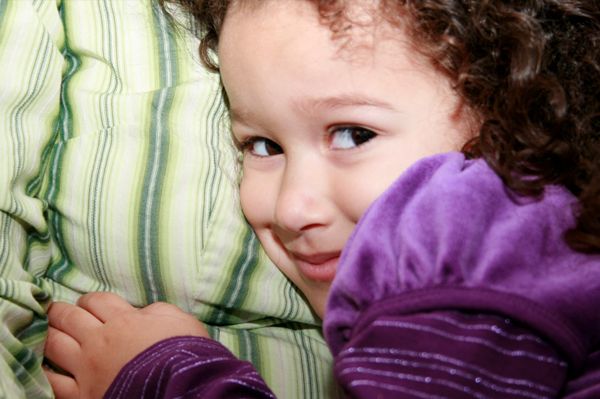 Communication with four-legged friends will help. It is possible that daily walks with your pet will expand the circle of pleasant acquaintances - for example, with other dog owners.
Communication with four-legged friends will help. It is possible that daily walks with your pet will expand the circle of pleasant acquaintances - for example, with other dog owners.
how to help a child overcome shyness?
home
Parents
How to raise a child?
Shy baby: how to help a child overcome shyness?
- Tags:
- Expert advice
- 3-7 years old
- social circle
- help baby
At home, your baby seems to never stop talking and accompanies all his actions with chatter. But as soon as he finds himself in a new environment, for example, on a playground where there are a lot of unfamiliar children, he turns into the most shy child in the world, hides behind your legs and refuses to come out.
Many parents think that it is not so bad to have a shy child. A little shyness is unlikely to interfere with the child, but in a more pronounced version, it negatively affects his desire to explore and learn about the world, narrows his social circle, and can even have a bad effect on academic performance in elementary school.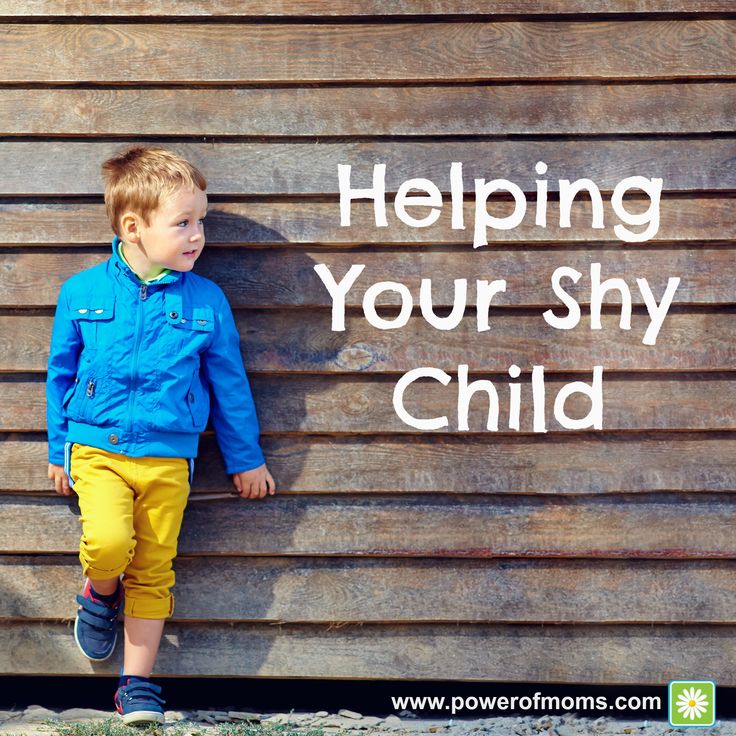
Bernardo Carducci, physician and author of books on shyness, claims that some teenagers turn to alcohol and drugs to cope with their shyness. There is another frightening consequence of "untreated" stiffness - such children become easy prey for hooligans among their peers.
How to distinguish ordinary caution from painful withdrawal at an early age?
How to distinguish healthy shyness from unhealthy?
Shyness is a state of mind caused by self-doubt or lack of social skills. But at the same time, timidity is a natural stage of development: it is a method of adapting to new situations.
In childhood, every person experiences two phases of fear of strangers: the first - at six months and the second - from two to four years. These processes are connected with the recognition and differentiation of oneself, people and the rest of the world.
But there are times when shyness becomes a problem. Such children, according to doctors, have other behavioral problems.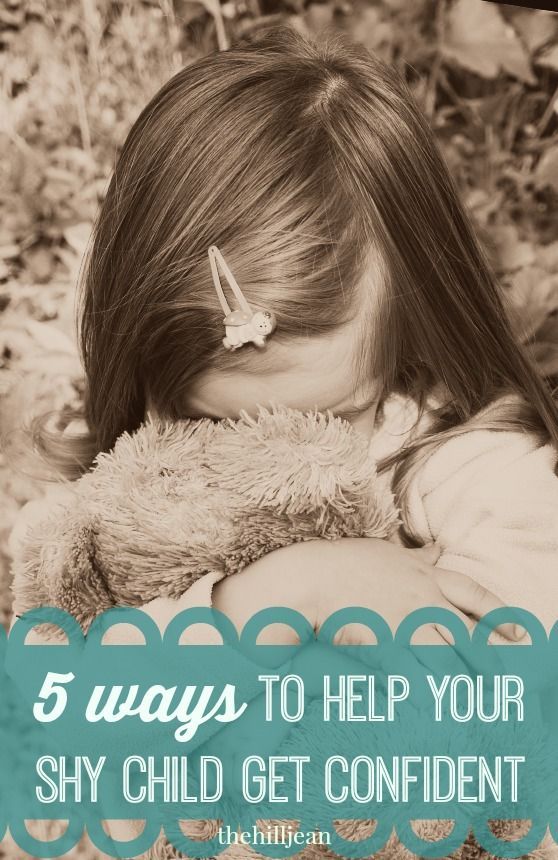 And if you watch them, then anger and strong fear will become noticeable - frequent neighbors of shyness.
And if you watch them, then anger and strong fear will become noticeable - frequent neighbors of shyness.
If you notice that your child is showing signs of unhealthy shyness, Parent Me recommends taking some time for this. Here are seven tips on how to do this.
8 tips for parents of shy children
1. Prepare your child to talk
Let's consider a situation in which you suddenly meet an old friend in the store who has not yet met your baby. And in response to questions, the child is silent and looks at the floor.
How to help a child in such a situation? Before introducing them, talk to a friend for a while. Let the baby see that you are comfortable with this person. This will calm him down and he will be ready to speak. But if the child refuses, do not insist, after the store ask why he was uncomfortable.
Practice the dialogues. Together with your child, make a list of expressions that the baby can use in conversation with peers, caregivers or teachers, your friends, family members.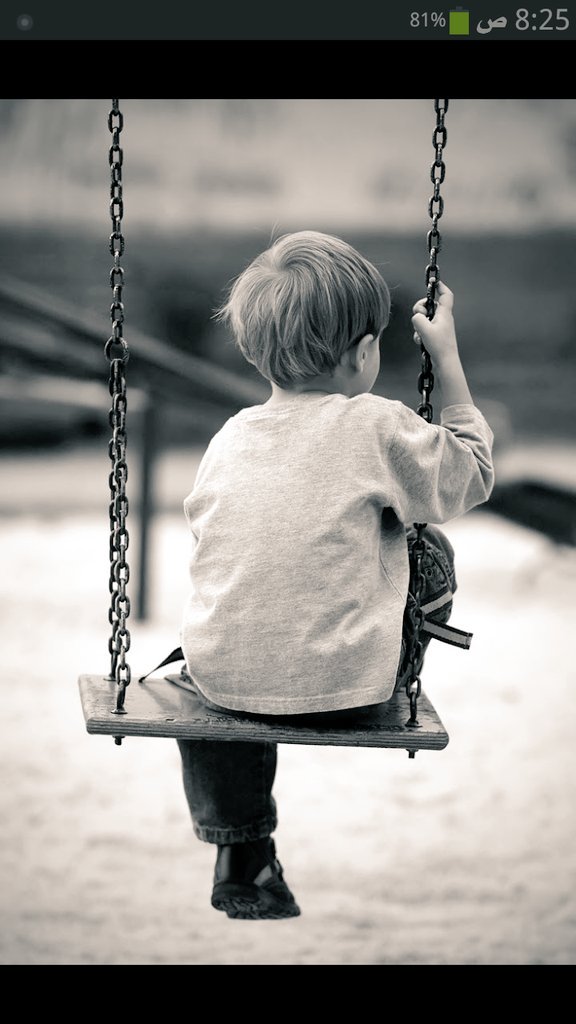 Then rehearse the dialogues: switch roles until the child feels confident and begins to communicate independently and freely with you.
Then rehearse the dialogues: switch roles until the child feels confident and begins to communicate independently and freely with you.
2. Show your baby how to initiate communication
Another awkward situation can happen on the playground. You go there one day and you don't see a single familiar face. And your baby is shy about making friends with other guys.
What can you do in such a situation? Encourage your child to help other children with their play, such as offering them a toy. Also, a few compliments made by you towards the guys can help to loosen up.
3. Prepare your child for noisy holidays
Before holidays or other noisy events in kindergarten or at home, tell your child what will happen at the holiday, who is invited, what will be done.
Phillip Zimbardo, a well-known psychologist who studies childhood shyness, in his recent book The Shy Child, recommends that parents of shy kids find younger friends for them. This helps children to liberate themselves, because communication with a younger child makes them feel leadership and responsibility, which is so necessary for timid children.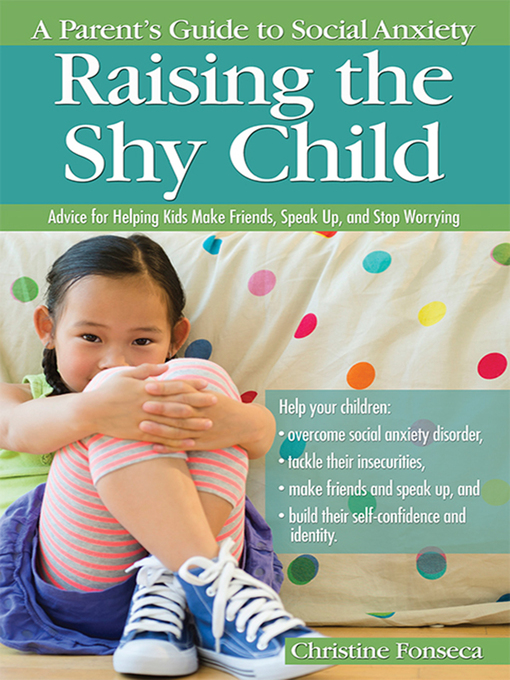 After that, the child will be able to communicate more confidently with peers.
After that, the child will be able to communicate more confidently with peers.
4. Watch yourself
A common cause of children's shyness lies in the behavior of parents: criticism, public shame, excessive control of every step of the child. At the same time, such behavior is not balanced by manifestations of parental love and praise.
Observe yourself and think about how you can change the way you treat your child to help him open up.
5. Do not give conflicting commands
Katerina Murashova, psychologist and author of books on parenting (https://www.ya-parental.ru/parents/base/), argues that conflicting instructions influence a child’s isolation and asociality parents.
When a child simultaneously hears “leave me alone,” “where did you go,” “stay out of your way,” “come to me,” and the like, he does not understand what he needs to do to make mom and dad happy, and withdraws into himself.
6. Do not discuss the child's behavior with other people
Do not focus on the child's shyness.